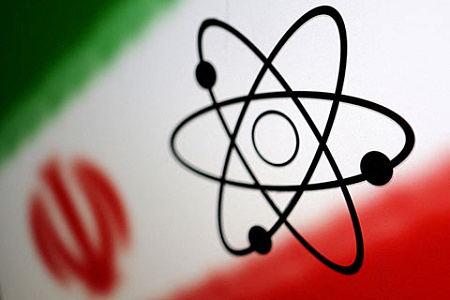
The existence of Iran’s uranium enrichment program is not up for discussion, said the Minister of Foreign Affairs of the Islamic Republic, Abbas Araghchi. This is how he responded to statements by the US special representative for the Middle East, Steven Witkoff, who has changed his mind several times in recent days about whether Washington will give Tehran the right to a civilian atom as part of a possible deal.
Tehran will begin “negotiations on a possible deal with the United States if the Americans take a constructive position,” Araghchi stressed on April 16. “Iran’s uranium enrichment is an actual and real fact,” Araghchi said, speaking to reporters. – We are ready to work on building confidence (in the fact that the Iranian nuclear industry pursues civilian goals. – “NG”), despite some concerns.
But the very principle of enrichment is non-negotiable.” The Iranian Foreign minister expressed regret that the Trump administration continues to make contradictory statements regarding its demands at the talks.
The reason was a series of statements made by Steven Witkoff in recent days. So, first, speaking on Fox News, the special representative of the American leader explained: if Iran declares the civilian nature of its nuclear program, then as part of a potential deal it should reduce the level of uranium enrichment from 60%, which is close to weapons-grade, to 3.67%. Witkoff explained that as part of the planned agreement with Tehran, the Trump administration will prescribe mechanisms for verifying Iran’s nuclear infrastructure, which, according to him, will be extremely strict and will cover, among other things, the Islamic Republic’s missile program, because missiles are the means of delivering nuclear weapons.
This provoked a wave of criticism against the White House, because it had previously promised that it would seek the complete dismantling of Iran’s nuclear infrastructure. Trump’s critics recalled that the 3.67% enrichment threshold is one of the conditions of the Joint Comprehensive Plan of Action (JCPOA), the 2015 nuclear deal that Trump rushed to break during his first term due to dissatisfaction with the diplomatic legacy of former Democratic President Barack Obama. American politicians and experts sarcastically noted that the White House is probably advised by former Obama advisers, and Trump’s Iran strategy itself looks no less consistent than his tariff policy.
Witkoff was forced to make a new statement to clarify the position of the White House. “The deal with Iran will be completed only if it is Trump’s deal,” the special representative of the American leader emphasized on the social network X. “Any final agreement must establish a framework for peace, stability and prosperity in the Middle East, which means that Iran must stop and eliminate its nuclear enrichment and weapons program.” Witkoff expressed confidence that it is extremely important for the international community that Iran and the United States “conclude a tough, fair deal that will stand the test of time.” It was precisely such an agreement that Trump instructed to achieve, Witkoff added.
But the fate of the civilian nuclear industry is not the only thing that the US-Iranian negotiations, the next round of which will be held in Oman on April 19, may stumble over. The British media revealed that, in the event of an agreement with Washington, Tehran is seeking the right to preserve its reserves of highly enriched uranium on its territory, rather than exporting them to a neutral country. As you know, the export of improved nuclear material was one of the important points of the JCPOA. 10 years ago, the Russian Federation assumed obligations to store dangerous uranium. Now, the Iranian authorities are appealing to the fact that the preservation of uranium reserves serves as their guarantee in the event that the deal is once again broken by one of the future American leaders.
According to Axios, Trump even had to initiate a round of intra-government discussions about how to approach Iran at the next meeting in Oman. U.S. Vice President Jay D. Vance and Witkoff share the view that compliance and compromise can lead to a high-quality nuclear deal. At the same time, US Secretary of State Marco Rubio and Trump’s national security aide Michael Walz look at the situation differently and suggest not deviating from maximalist demands in negotiations with Iran. As Axios notes, Trump himself is sending mixed signals: he says he wants a deal and calls for diplomacy, but at the same time does not discount the use of force.
“The contradictory statements by Trump and his special representative, as well as their speculations about Iran’s red lines, indicate confusion and inconsistency within the American administration. The continuation of these statements sows distrust of the United States among our country’s negotiators, recalling Washington’s withdrawal from the JCPOA,” General Mohsen Rezai, Secretary General of the Council for Determining Iran’s Political Expediency, stated on the social network.
Araghchi will arrive in Moscow on April 17 to inform Russia, one of the countries participating in the JCPOA, about the progress of the negotiation process with the United States. The chief of Iranian diplomacy said that at the same time he plans to convey to Russian President Vladimir Putin a message from Iran’s supreme leader Ali Khamenei. The chief of Iranian diplomacy did not disclose its contents.
The situation in Iran’s relations with the European parties to the previous nuclear agreement still looks tense. According to The Tehran Times, the Eurotroika (Germany, Great Britain and France) is currently dissatisfied with the fact that it was not included in the negotiation process, and therefore allegedly seeks to suspend the dialogue. If the Iranian leadership really suspects a conspiracy on the part of the Europeans, this may explain why the second round of American-Iranian consultations will be held again in Oman on April 19, and not in Italy, as previously assumed.
